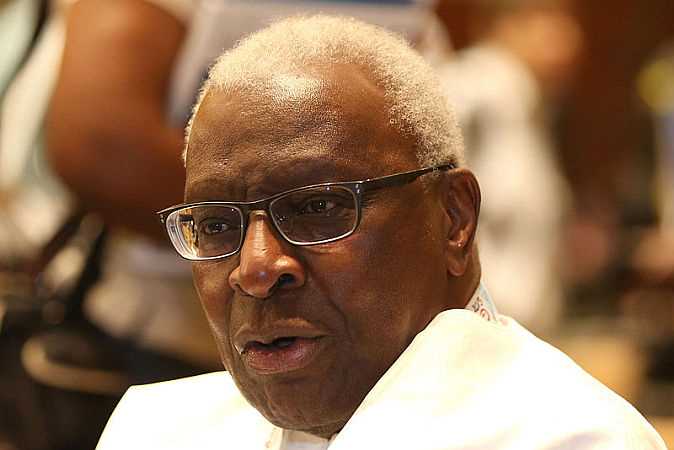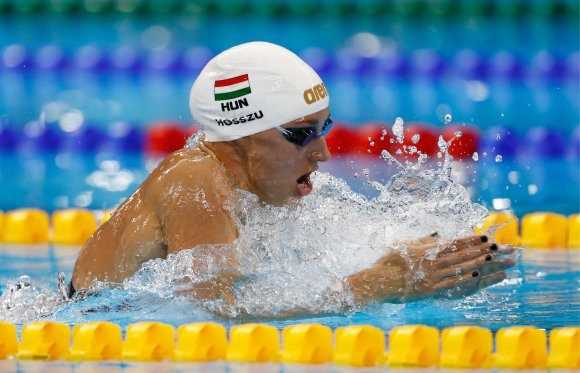Twice Olympic gold medalist Vincent Hancock of the U.S. had his eye on the Skeet title at the ISSF World Championships in Changwon (KOR) and he almost didn’t miss a single shot!
With Olympic qualifying quota spots on the line for the U.S., Hancock went out and equaled the World Record of 125 (0 misses) for the qualifying round first set in 2014 by Italy’s Valerio Lichini (and equaled multiple times since) and then shot 59/60, hitting his last 52 targets to equal the record for finals shooting set by Ricardo Filippelli (ITA) and Ben Llewellin (GBR in 2017; they finished third and sixth, respectively, in the final!
“This was an amazing match,” he said afterwards. “I had a really good 125 and I was able to accomplish my goal which was to come out here and do the best I could. I’m very happy of shooting a 59 and being able to win another gold, it’s one more step. Hopefully I could get to the Olympics and shoot both a 125 and a 60.
“Having won the quota [place] now does change the plans for next year. I had a goal of being able to take some time off next year to try to set myself up and to be able to peak again in 2020. Taking time off after 2016 was a good experience, and it led to a very successful 2017 and obviously a very good 2018. So I’ll try to emulate that, take some time off, spend some time with the family, be happy and love what I do.”
Along with two Olympic golds in 2008-12, this was Hancock’s fourth World Championships gold, to go along with his wins in 2005-09-15.
The 2018 Worlds started the Olympic qualification cycle for Tokyo as 60 quota places – generally the top four in each event – were assigned for the 2020 Games. The U.S. claimed places in the men’s 50 m Rifle/3 Positions (1), men’s Skeet (1), and women’s Skeet (2). Summaries:
ISSF World Championships
Changwon (KOR) ~ 31 August-15 September 2018
(Full results here)
Men
10 m Air Pistol: 1. Jong-Oh Jin (KOR), 241.5; 2. Artem Chernousov (24.15), 241.5 (Jin won shoot-off: 10.3-9.5); 3. Dae-Myung Lee (KOR), 220.6; 4. Pavlo Korostylov (UKR), 198.5; 5. Ruslan Lunev (AZE), 177.7; 6. Seung-Woo Han (KOR), 158.8; 7. Quoc Cuong Tran (VIE), 136.9; 8. Abhishek Verma (IND), 118.0.
Team 10 m Air Pistol: 1. Korea (Dae. Lee, Jin, S. Han), 1,747; 2. India (Verma, Mitharval, Rizvi), 1,738; 3. Russia (Chernousov, Koulakov, Gourianov), 1,736; 4. Vietnam, 1,731; 5. Serbia, 1,729; 6. Ukraine, 1,729; 7. China, 1,726; 8. Italy, 1,726. Also: 17. United States (Nick Mowrer, Jerson Herndon, James Hall), 1,710.
10 m Running Target/Final: 1. Jesper Nyberg (SWE), 6; 2. Maxi Stepanov (RUS), 3. Third: Vladislav Prianishnikov (RUS), 6; 4. Lukasz Czapla (CZE), 4.
Team 10 m Running Target: 1. Russia (Prianishnikov, Stepanov, Shchepotkin), 1,734; 2. DPR Korea, 1,722; 3. Sweden, 1,718; 4. Finland, 1,696; 5. Korea, 1,685; 6. Hungary, 1674; 7. China, 1,674; only entrants.
25 m Rapid Fire Pistol: 1. Junmin Lin (CHN), 32; 2. Jian Zhang (CHN), 31; 3. Jean Quiquampoix (FRA), 24; 4. Alexei Klimov (RUS), 20; 5. Oliver Geis (GER), 12; 6. Junhong Kim (KOR), 12.
Team 25 m Rapid Fire Pistol: 1. China (Lin, Zhang, Yao), 1,756 (World Record; old, 1,749, China, 2010); 2. Germany (Geis, Reitz, Freckmann), 1,751; 3. Korea (Kim, Song, Park), 1,745; 4. France, 1,742; 5. Russia, 1,741; 6. Ukraine, 1,737; 7. Czech Republic, 1,727; 8. Poland, 1,724. Also: 12. United States (Keith Sanderson, Brian Kim, Alexander Chichkov), 1,702.
10 m Air Rifle: 1. Sergey Kamenskiy (RUS), 248.4; 2. Petar Gorsa (CRO), 247.5; 3. Miran Maricic (CRO), 227.3; 4. Zicheng Hui (CHN), 206.1; 5. Hoaran Yang (CHN), 185.7; 6. Deepak Kumar (IND), 164.1; 7. Mahyar Sedaghat (IRI), 143.0; 8. Taeyun Nam (KOR), 121.4.
Team 10 m Air Rifle: 1. China (Yang, Hui Yu), 1,887.4 (World Record; old, 1,886.5, China, 2014); 2. Russia (Kamenskiy, Maslennikov, Dryagin), 1,884.0; 3. Korea (Nam, Kim, Song), 1,878.5; 4. India, 1,878.4; 5. Croatia, 1,878.3; 6. Japan, 1,877.6; 7. Hungary, 1,876.6; 8. Iran, 1,875.9. Also: 17. United States (Bryant Wallizer, Dempster Christiansen, Lucas Kozeniesky), 1,866.0.
50 m Rifle/3 Positions: 1. Tomasz Bartnik (POL), 460.4; 2. Petar Gorsa (CRO), 457.4; 3. Michael McPhail (USA), 446.9; 4. Henrik Larsen (NOR), 437.0; 5. Haoran Yang (CHN), 427.4; 6. Zicheng Hui (CHN), 416.4; 7. Vitali Bubnovich (BLR), 401.4; 8. Dane Sampson (AUS), 401.0.
Team 50 m Rifle/3 Positions: 1. Russia (Louginets, Maslennikov, Kamenskiy), 3,535 (World Record; old, 3,529, China, 2013); 2. China (Yang, Hui, Yao), 3,532; 3. Belarus (Shcherbatsevich, Chareika, Bobnovich), 3,526; 4. France, 3,522; 5. Austria, 3,516; 6. Norway, 3,513; 7. United States (Matt Emmons, Michael McPhail, Lucas Kozeniesky), 3,511; 8. Ukraine, 3,510.
300 m Rifle/Prone: 1. Rajmond Debevec (SLO), 592; 2. Daniel Romanczyk (POL), 592; 3. Josip Kuna (CRO), 590; 4. Gilles Vincent Defaux (SUI), 589; 5. Jan Lochbihler (SUI), 589; 6. McPhail (USA), 588; 7. Sitan Bogar (NOR), 588; 8. Valerian Sauveplane (FRA), 588. Also: 27. Johnny Whidden Jr. (USA), 581.
Team 300 m Rifle/Prone: 1. France (Moreno Flores, Sauveplane, D’Halluin), 1,761; 2. Switzerland (Defaux, Lochbihler, Ackermann), 1,757; 3. Norway (Bryhn, Bogar, Brekne), 1,755; 4. Sweden, 1,753; 5. Korea, 1,752; 6. Austria, 1,744; 7. Poland, 1,729; 8. United States (Michael McPhail, Johnny Widden, Jr., Joseph Hein), 1,727.
300 m Rifle/Standard: 1. Aleksi Leppa (FIN), 580; 2. Karl Olsson (SWE), 576; 3. Odd Arne Brekne (NOR), 576; 4. Young Jeon Choi (KOR), 576; 5. Lochbihler (SUI), 575; 6. Alexis Raynaud (FRA), 575; 7. Defaux (SUI), 574; 8. Peter Sidi (HUN), 574. Also: 27. Bradley Yliniemi (USA), 554; … 31. Mark Gould (USA), 549
Team 300 m Rifle/Standard: 1. Norway (Brekne, Lund, Bryhn), 1,722; 2. Korea (Choi, lee, Cheon), 1,711; 3. Switzerland (Lochbihler, Defaux, Rossi), 1,708; 4. France, 1,691; 5. Austria, 1,691; 6. Slovenia, 1,691; 7. Saudi Arabia, 1,656; 8. India, 1,642.
Skeet: 1. Vince Hancock (USA), 59 (equals World Record, also by Ricardo Filippelli (ITA), 2017 and Ben Llewellin (GBR), 2017); 2. Erik Watndal (NOR), 55; 3. Riccardo Filippelli (ITA), 45; 4. Emmanuel Petit (FRA), 37; 5. Jakub Tomecek (CZE), 27; 6. Ben Llewellin (GBR), 17.
Team Skeet: 1. France (Petit, Delaunay, Terras), 365; 2. Italy (Filippelli, Rossetti, Cassandro), 363; 3. Russia (Astakhov, Zemlin, Startsev), 361; 4. United States (Vince Hancock, Frank Thompson, Phillip Russell), 360; 5. Germany, 359; 6. Finland, 358; 7. Korea, 357; 8. Cyprus, 357.
Trap: 1. Alberto Fernandez (ESP), 48 (equals World Record, Fernandez, 2017); 2. Erik Varga (SVK), 47; 3. Abdulrahman Al Faihan (KUW), 32; 4. James Willett (AUS), 28; 5. Mauro de Filippis (ITA), 23; 6. Walton Eller (USA), 17.
Team Trap: 1. Kuwait (Abdul Al Faihan, Talai Alrashidi, Khaled Almudhaf), 360; 2. United States (Walton Eller, Grayson Davey, Casey Wallace), 360; 3. Italy (De Filippis, Pellielo, Grazini), 360; 4. Russia, 359; 5. Croatia, 358; 6. Czech Republic, 357; 7. Portugal, 356; 8. Slovakia, 355.
Women
10 m Air Pistol: 1. Anna Korakaki (GRE), 241.1; 2. Zorana Arunovic (SRB), 239.8; 3. Bomi Kim (KOR), 218.8; 4. Qian Wang (CHN), 198.1; 5. Ranxin Jiang (CHN), 178.7; 6. Vitalina Batsarashkina (RUS), 157.2; 7. Klaudia Bres (POL), 136.9; 8. Minjung Kim (KOR), 116.5.
Team 10 m Air Pistol: 1. China (Jiang, Wang, Ji), 1,739 (World Record; new event); 2. Korea (Min. Kim, B. Kim, Kwak), 1,734; 3. Russia (Batsarashkina, Lomova, Medvedeva), 1,720; 4. India, 1,713; 5. France, 1,712; 6. Iran, 1,711; 7. Poland, 1,710; 8. Chinese Taipei, 1,708. Also: 14. United States (Sandra Uptagrafft, Lexi Lagan, Nathalia Granados), 1,700.
10 m Running Target/Final: 1. Olga Stepanova (RUS), 7; 2. Xue Yan Li (CHN), 5. Third: 3. Galina Avramenko (UKR), 6; 4. Ji Ye Ri (PRK), 3.
Team 10 m Running Target: 1. China (Li, Su, Huang), 1,673 (World Record; new event); 2. DPR Korea, 1,672; 3. Russia, 1,668; 4. Ukraine, 1,659; 5. Korea, 1,613; only entrants.
25 m Pistol: 1. Olena Kostevych (UKR), 37; 2. Batsarashkina (RUS), 37 (Kostevych won shoot-out, 4-4-3 to 4-4-2); 3. Doreen Vennekamp (GER), 31; 4. Chia Chen Tien (TPE), 26; 5. Monika Karsch (GER), 18; 6. Jungeun Lee (KOR), 16; 7. Aldana Said Almubarak (QAT), 11; 8. Xiu Hong Teh (SGP), 7.
Team 25 m Air Pistol: 1. China (Jiang, Lin, Yao), 1,746; 2. Korea (Lee, Kim, Kwak), 1,746; 3. Germany (Karsch, Vennekamp, Skeries), 1,744; 4. Poland, 1,741; 5. Bulgaria, 1,739; 6. India, 1,738; 7. Russia, 1,738; 8. France, 1,736. Also: 12. United States (Uptagrafft, Lagan, Brenda Silva), 1,726.
10 m Air Rifle: 1. Hana Im (KOR), 251.1; 2. Anjum Moudgil (IND), 248.4; 3. Eunhea Jung (KOR), 228.0; 4. Apurvi Chandela (INDZ0, 207.0; 5. Adele Tan (SGP), 184.3; 6. Ying-Shin Lin (TPE), 163.4; 7. Petra Zublasing (ITA), 142.9; 8. Isabella Straub (GER), 122.1.
Team 10 m Air Rifle: 1. Korea (Im, Jung, Keum), 1,886.2 (World Record; new event); 2. India (Moudgil, Chandela, Ghosh), 1,879.0; 3. Germany (Straub, Gschwandtner, Simon), 1,878.4; 4. Chinese Taipei, 1,878.2; 5. Mongolia, 1,877.3; 6. China, 1,876.5; 7. Russia, 1,875.6; 8. Romania, 1,873.5. Also: 16. United States (Sarah Beard, Minden Miles, Alison Weisz), 1,867.0.
50 m Rifle/3 Positions: 1. Yulia Karimova (RUS), 461.1; 2. Isabella Straub (GER), 459.5; 3. Snjezana Pejcic (CRO), 446.4; 4. Seonald McIntosh (GBR), 435.0; 5. Nina Christen (SUI), 424.4; 6. Xiangyan Wan (CHN), 414.3; 7. Jenny Stene (NOR), 404.7; 8. Franziska Peer (AUT), 400.9.
Team 50 m Rifle/3 Positions: 1. Germany (Straub, Beer, Orth), 3,521 (World Record; new event); 2. Denmark (Ibsen, Neilsen, Grundsoee), 3,518; 3. Russia (Kairmova, Khorosheva, Zykova), 3,511; 4. China, 3,510; 5. Norway, 3,503; 6. Korea, 3,501; 7. United States (Sarah Beard, Sagen Maddalena, Mackensie Martin), 3,493; 8. Austria, 3,491.
300 m Rifle/Prone: 1. Sohee Bae (KOR), 592; 2. Eva Roesken (GER), 588; 3. Silvia Guignard Schnyder (SUI), 586; 4. Elin Ahlin (SWE), 585; 5. Lisa Mueller (GER), 584; 6. Helen Freiman (NZL), 584; 7. Charlotte Jakobsen (DEN), 583; 8. Bitna Eum (NOR), 582. Also: 13. Sarah Beard (USA), 580; … Reya Kempley (USA), 573; … 32. Denise Loring (USA), 562.
Team 300 m Rifle/Prone: 1. Germany (Roesken, Mueller, Beer), 1,748; 2. Korea (Sohee Bae, Eum, Sang Bae), 1,737; 3. Switzerland (Guignard Schnyder, Bruehlmann, Schnider), 1,737; 4. Sweden, 1,734; 5. Ukraine, 1,731; 6. Austria, 1,726; 7. Estonia, 1,725; 8. Poland, 1,719. Also: 9. United States (Sarah Beard, Reya Kempley, Denise Loring), 1,715.
300 m Rifle/3 Positions: 1. Mueller (GER), 1,161 (World Record; new event); 2. Jolyn Beer (GER), 1,161 (equals World Record); 3. Ahlin (SWE), 1,159; 4. Franzisak Peer (AUT), 1,157; 5. Beard (USA), 1,154; 6. Sohee Bae (KOR), 1,150; 7. Guignard Schnyder (SUI), 1,150; 8. Roesken (GER), 1,147. Also: 23. Kempley (USA), 1,117; … 30. Loring (USA), 1,053.
Team 300 m Rifle/3 Positions: 1. Germany (Mueller, Beer, Roesken), 3,469 (World Record; new event); 2. Austria (Peer, Hofmann, Ungerank), 3,436; 3. Switzerland (Guignard Schnyder, Schnider, Bruehlmann), 3,429; 4. Sweden, 3.419; 5. Korea, 3,373; 6. Ukraine, 3,370; 7. Estonia, 3,368; 8. Poland, 3,365. Also: 9. United States (Beard, Kempley, Loring), 3,324.
Skeet: 1. Caitlin Connor (USA), 57; 2. Kim Rhode (USA), 56; 3. Amber English (USA), 46; 4. Danka Bartenova (SVK), 36; 5. Natalia Vinogradova (RUS), 26; 6. Andri Eleftheriou (CYP), 14.
Team Skeet: 1. United States (Connor, Rhode, English), 355 (World Record, new event); 2. Italy (Spada, Bacosi, Cainero), 347; 3. Cyprus (Eleftheriou, Nikolaou, Andreou), 345; 4. Germany, 341; 5. Thailand, 330; 6. Korea, 329; 7. Poland, 329; 8. Czech Republic, 324.
Trap: 1. Zuzana Rehak Stefecekova (SVK), 45; 2. Xiaojing Wang (CHN), 45 (Rehak Stefecekova won shoot-off, 3-2); 3. Silvana Stanco (ITA), 36; 4. Laetisha Scanlan (AUS), 30; 5. Chun Lin Yi (CHN), 25; 6. Beatriz Martinez (ESP), 19.
Team Trap: 1. Italy (Stanco, Rossi, Iezzi), 343 (World Record; new event); 2. Spain (Martinez, Galvez, Munoz), 342; 3. United States (Kayle Browning, Ashley Carroll, Aeriel Skinner), 339; 4. China, 338; 5. Chinese Taipei, 329; 6. Finland, 329; 7. Korea, 326; 8. India, 325.� Mixed
Team 10 m Air Pistol: 1. Vitalina Batsarashkina/Artem Chernousov (RUS), 488.1; 2. Qian Wang/Meng Yi Wang (CHN), 480.2; 3. Olena Kostevych/Oleh Omelchuk (UKR), 416.7; 4. Zorana Arunovic/Damir Mikec (SRB), 376.7; 5. Sonia Franquet/Pablo Carrera (ESP), 331.6.
Team 10 m Air Rifle: 1. Ruozhu Zhao/Haoran Yang (CHN), 500.9; 2. Mingyang Wu/Buhan Song (CHN), 500.6; 3. Anastasia Galashina/Vladimir Maslennikov (RUS), 434.2; 4. Laura-Georgeta Coman/Alin George Moldoveanu (ROU), 390.5; 5. Isabella Straub/Maximillian Dallinger (GER), 346.9.
Team Mixed Trap: 1. Zuzana Rehak Stefecekova/Erik Varga (SVK), 45; 2. Ekaterina Rabaya/Alexey Alipov (RUS), 40; 3. Kirsty Barr/Aaron Heading (GBR), 33; 4. Silvana Stanco/Mauro de Filippis (ITA), 28; 5. Jessica Rossi/Giovanni Pellielo (ITA), 22; 6. Safiye Sariturk/Oguzhan Tuzun (TUR), 18.





















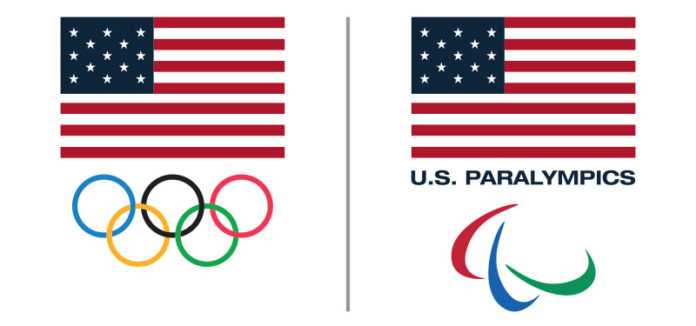



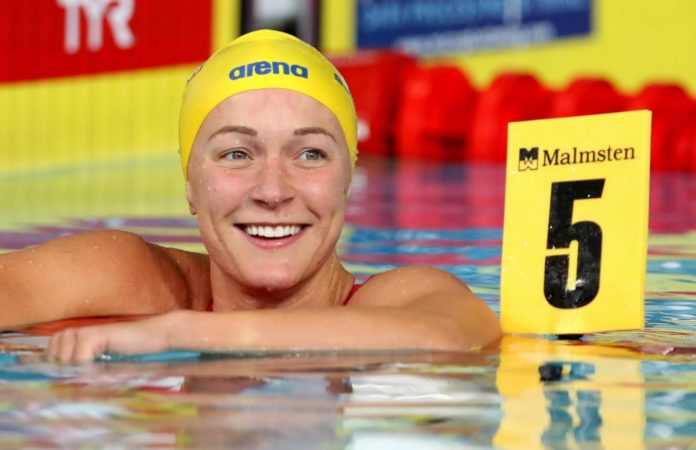
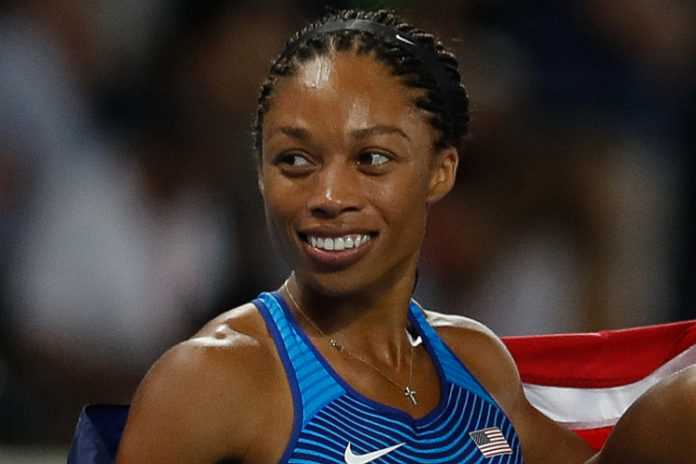
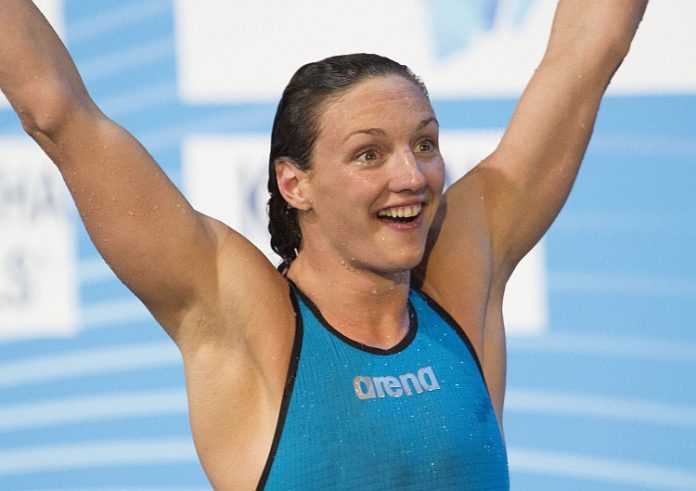
 Once again, the Berlin Marathon was the setting for a historic marathon as Kenya’s Eliud Kipchoge made history by lowering the world record to an astonishing 2:01:39.
Once again, the Berlin Marathon was the setting for a historic marathon as Kenya’s Eliud Kipchoge made history by lowering the world record to an astonishing 2:01:39.